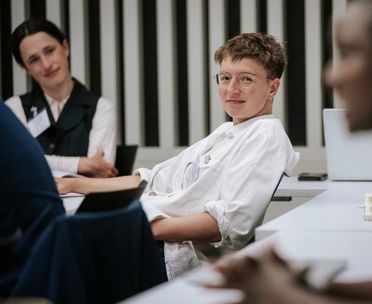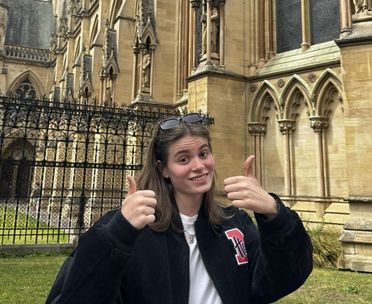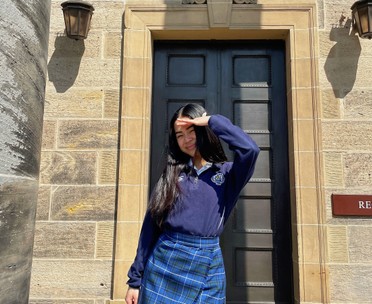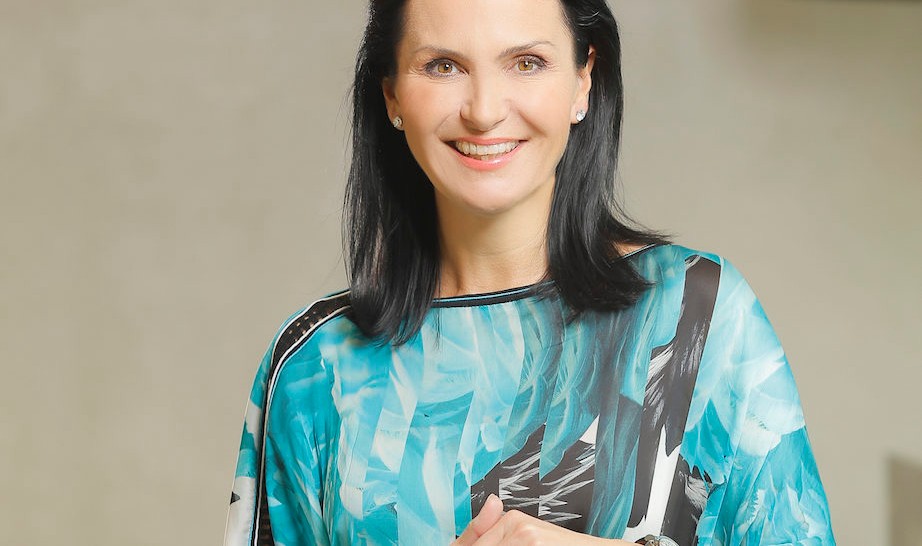

Michaela Bakala's Interview for Proženy.cz
December 1, 2022
The interview with Michaela Bakala was conducted by editor Lucie Šilhová for the Czech portal Proženy.cz and was printed on 24 October 2022. The original version is available here.
MICHAELA BAKALA ON: RAISING KIDS AMONGST AFFLUENCE, LIFE AFTER 50, AND RETURNING TO SCHOOL.
It’s been thirty-one years since Michaela Bakala, then Malacova, won the Miss Czechoslovakia crown. Much has changed since then, but as she says, she is still the same. And despite the fact that her husband, Zdenek Bakala, is one of the richest men in business, the businesswoman, philanthropist and mother of four has similar worries and joys to many of her peers.
Listing all of Michaela Bakala’s activities would require more fingers than you have on both hands. In addition to the large family she cherishes, she and her husband Zdenek, are raising four children, the oldest daughter being sixteen and the youngest nine. We want to know, how are the children learning the value of money and why did Michaela and Zdenek choose education as their main area of philanthropy?
Last year you celebrated your 50th birthday, so I’m going to ask you the title of a column that appears on Proženy.cz – How do you see your life through the lens of a 50-year old?
I’m a very happy 50-year old. Last year was one of the most pleasant and interesting in my life. Of course, I couldn’t help looking back over the decades. I celebrated my 30th birthday with my Swiss husband in Brno. I was working for ODS (The Civic Democratic Party, in Czech Občanská demokratická strana), my career was on a roll, and tomorrow was promising. I felt extremely young at 30 years old! I was just starting out and already the world was at my feet!
Suddenly, 40 found me a mother of three and married for the second time. Again, I felt my life was ahead of me, it was just beginning. Little kids, a new relationship, a new home in Switzerland, the Czech Miss competition in full swing, I thought: ‘Girl, you won’t be bored for a long time.’ I’d also been cautiously thinking that maybe I could have one more baby despite being past 40. Which I finally did.
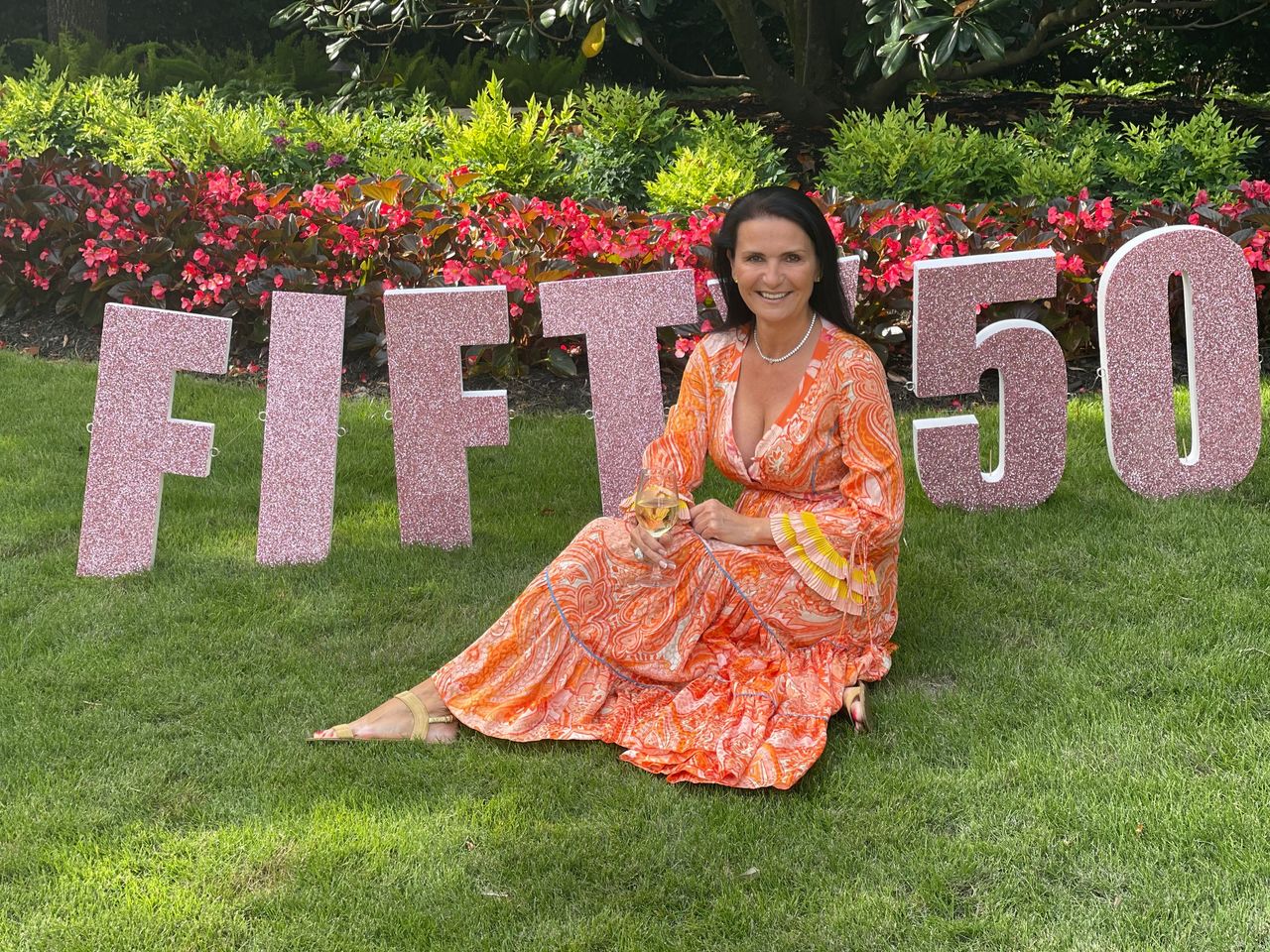
Did you plan a big family?
I wanted to have a family, but the question was whether anyone would want to have a family with me. But then I met Zdenek, who said the more children the better. It was a bit unsettling at the time, because I wasn’t sure if I would ever become a mother at that point. I was thirty-five, it was almost too late to start. But we both wanted kids, so we said, let’s do it. I mean, we didn’t even say it much, but we pursued it with a passion. Our relationship was very intense from the beginning.
How does the wife of a very exposed man maintain her identity?
We met at a time when I didn’t need to be someone’s appendage, and he wasn’t looking for an appendage either. I believe that if I had met a man in his power and position in his twenties, you and I might not even be having this conversation. The fifteen years I’d been on my own as an adult, I’d found my own way, worked every day, and made a name for myself no matter who I was with. So when I met Zdenek Bakala, a successful man ten years my senior, I already had the strength and experience to keep my identity as “Michaela”. But, of course, he influences me and I influence him, as do all partners. In this respect, the best compliments have been paid to me by friends from high school in Brno. These are friends whom I see regularly and have known since I was 14, they tell me: “you haven’t changed at all, you’re still the same Michaela.”
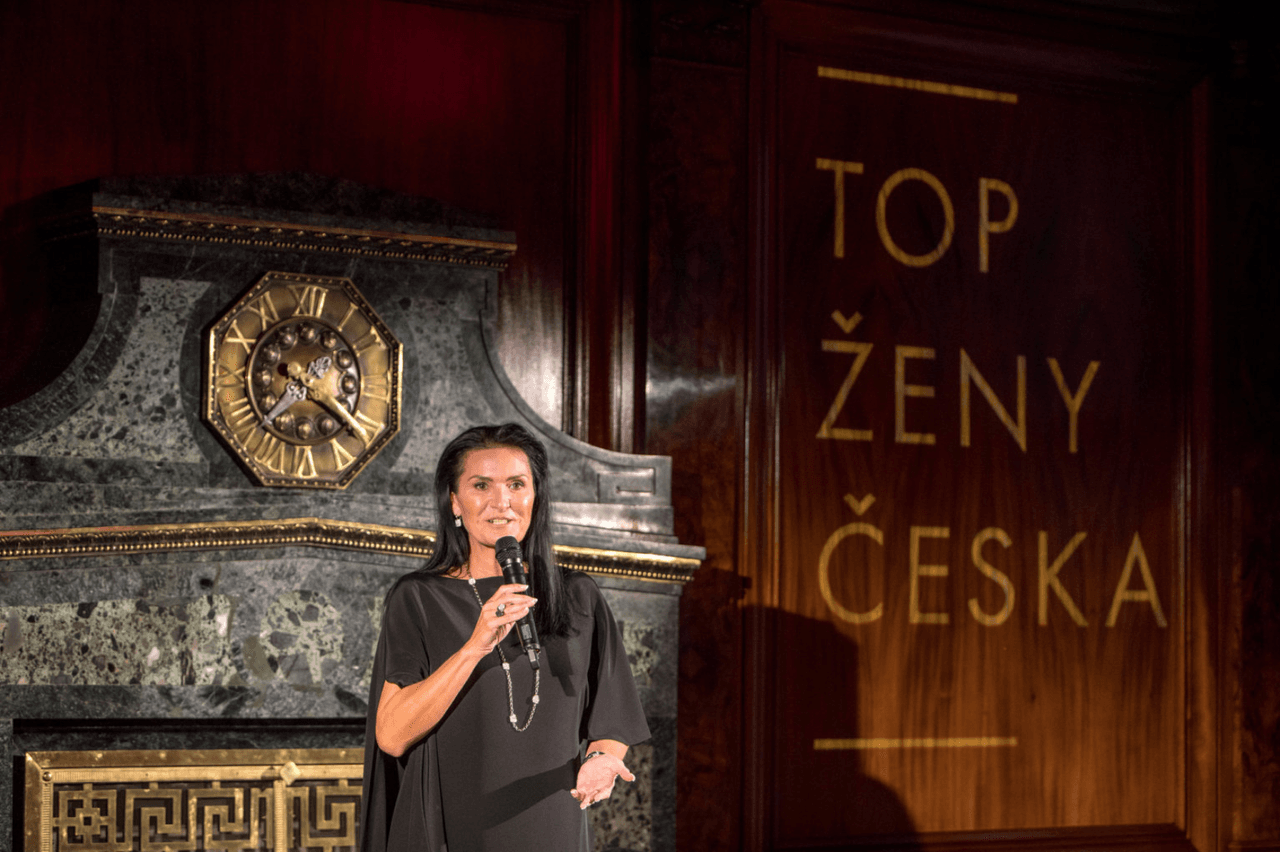
You have a two-career marriage, how do you complement each other?
My husband is a typical man in that he doesn’t share a lot of things. He expects me to use my intuition to understand them and somehow understand him. At the same time, he knows that he can afford to dream and take some risks because he has a partner who will tighten things up when necessary. I believe he knows he can count on me. He can show respect and admiration for what he has gained from meeting me, and vice versa. There is a balance between us and an understanding that we are stronger together.
Are you the kind of woman who counts wrinkles?
I don’t have time to age because I’m always part of new projects, meeting new people all over the world. I realize that with each new encounter and experience, my being gets better. Hence, it’s no longer about whether I look good and whether it’s still "90-60-90". What matters to me is that I feel good physically and I am not dealing with any serious health issues.
Your children are sixteen, fifteen, thirteen and nine. It must have been pretty nice for you all to be home together during COVID.
It was quite a shock at first. Our time is usually very structured. We travel a lot for work, we have a lot of social obligations, plus the kids and their activities. All of a sudden, none of that was happening. But for me it was very calming and brought me closer to my husband and children. Suddenly I was again a mom who woke them up in the morning and made breakfast, cleaned, and cooked. At first I did find that I had forgotten some things about that part of running a household, but of course I wasn’t going to admit that at all! Soon, however, I was back “on the mark”. We weren’t in a hurry to get anywhere and I realized again that my priority was to take care of the children. At the same time, I tried not to forget myself, or the two of us. My goal is that when the children graduate peacefully and fly the nest, they will know that they have a secure and solid base in their family. The rest will be up to each of them.
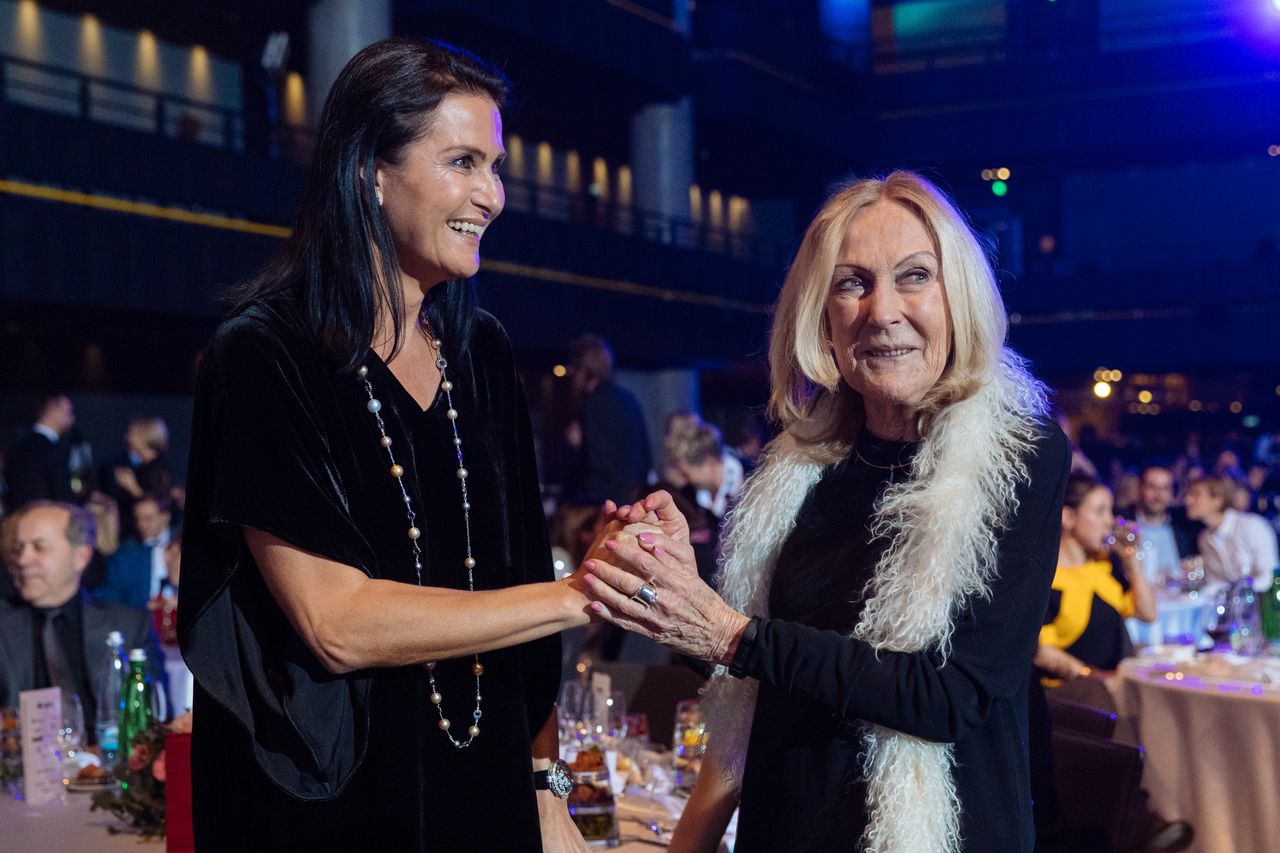
What is the difference between your childhood and that of your children’s? And I don’t mean in terms of changes in society…
The upbringing is fundamentally very similar. We’re lucky in that Zdenek and I come from families that had similar values. This helps us avoid a lot of conflict. Sometimes I even find myself using the same phrases as my mother when I get angry, even though I used to hate them when I was young. I swore I wouldn’t be like that. But now I hear myself – I even have the same tone of voice – and I can’t stop it.
Your children have incredibly successful parents. Will they be able to understand the value of money?
We’re trying to help them understand. We’ll see how it pays off for us and for them in life. But, even now, I don’t feel like they take everything for granted. Also, they see that Zdenek and I have other priorities than being decked out in jewelry, driving the most expensive cars, and getting hit on. Still, it’s very hard to simulate need. I haven’t figured out how to do that yet.
I’m sure you aren’t the only one. Apart from the sad cases of really poor families, most kids have what they need. Oftentimes a lot more. It’s hard to describe to them the joy of getting something you’ve wanted for years.
As you can see, the question of the value of money or things is not just for me, but for all parents in general. Most kids today go to the seaside, have an iPad, an iPhone, access to the internet, and the freedom to pursue their hobbies. But what next? My husband and I have decided that our priority is education. Beyond that, we lead our children to be respectful of others, and open-minded by allowing them to travel the world, living on different continents and in different cultures. That is perhaps the most valuable thing we can give them. Also, our experience. I often say to them, ‘please don’t go this way, we’ve messed up here, or this hasn’t paid off.’
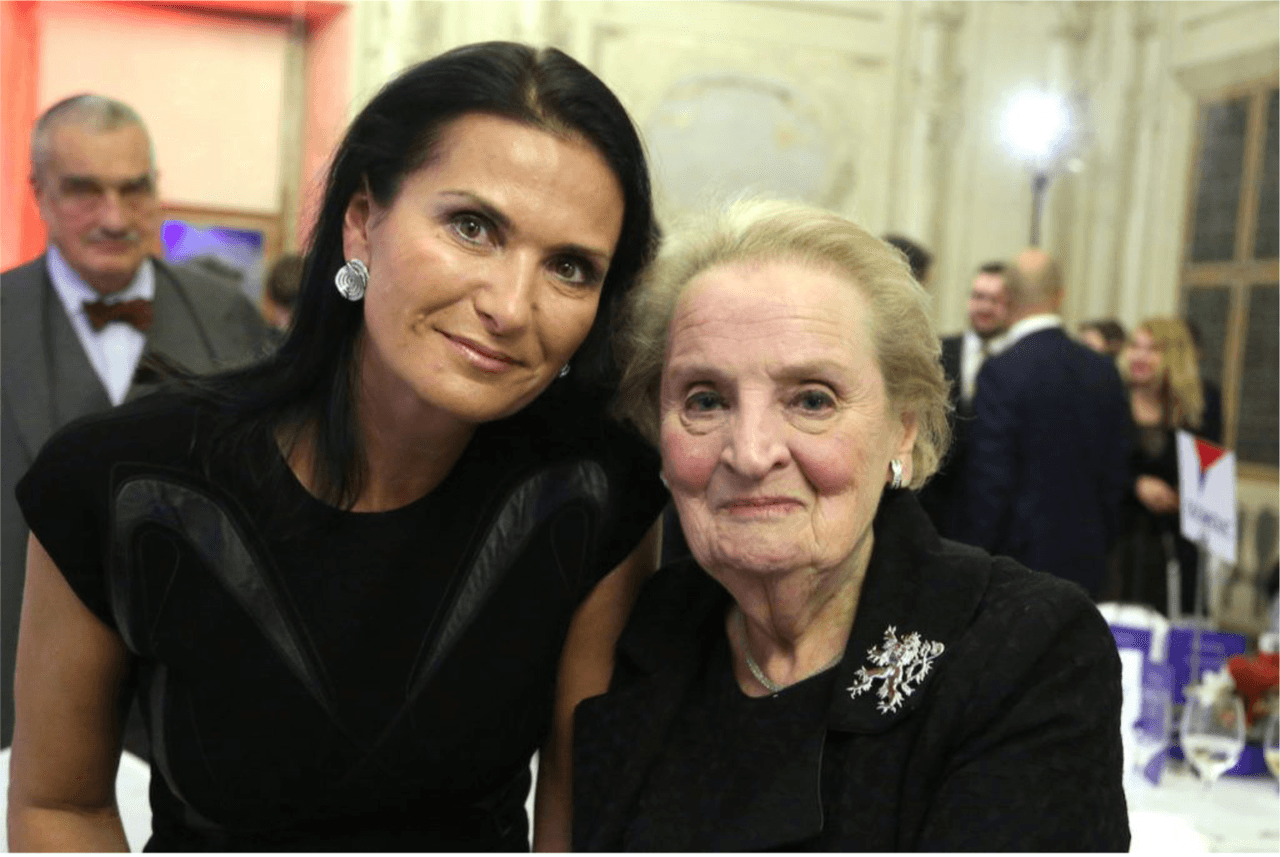
Don’t you sometimes feel that our children know more than we do?
In what way? They’re definitely overwhelmed with information. For us, when we didn’t know something or needed to understand something, we sought help or went to the library. Our children don’t have that skill, they find everything at the click of a button. Even me, I don't store data in my memory anymore. What I don’t have in my notes, I don’t know. What’s not on my calendar, I don’t do. We’ve all gotten used to having our memory, not in our heads, but in the cloud. Still, how we process and use information is very important. For that, we need education and experience, otherwise it’s useless. So, I still have something on my kids. On the other hand, they often help me with technical things. I'm not ashamed to ask them if I can’t handle something. They see how I behave when I need to make an important decision. Which happens every day, actually.
What kind of family do you come from?
My dad graduated from agricultural college, then taught for a while and ended up in the international agricultural equipment business. His father, my grandfather, was sent to Jáchymov in the 1950’s. He got fourteen years for fighting against the communist regime and nationalization. My father was seven years old when they came to arrest him. On Mom’s side, there were two generations of Evangelical ministers. They were not close to the regime, but they needed the state’s permission to operate. Pastors were considered employed by the state and needed to be cooperative. Those who did not do so had their approval to work taken away. This happened to my grandfather, forcing him to move his whole family several times. He was expected to serve the state and the Lord God at the same time, thus putting himself in a huge wedge. That’s why whenever someone aggressively evaluates the behavior of another during the past regime, I feel anyone has the capacity to be very strict and radical. Who really knows how he or she would have behaved?
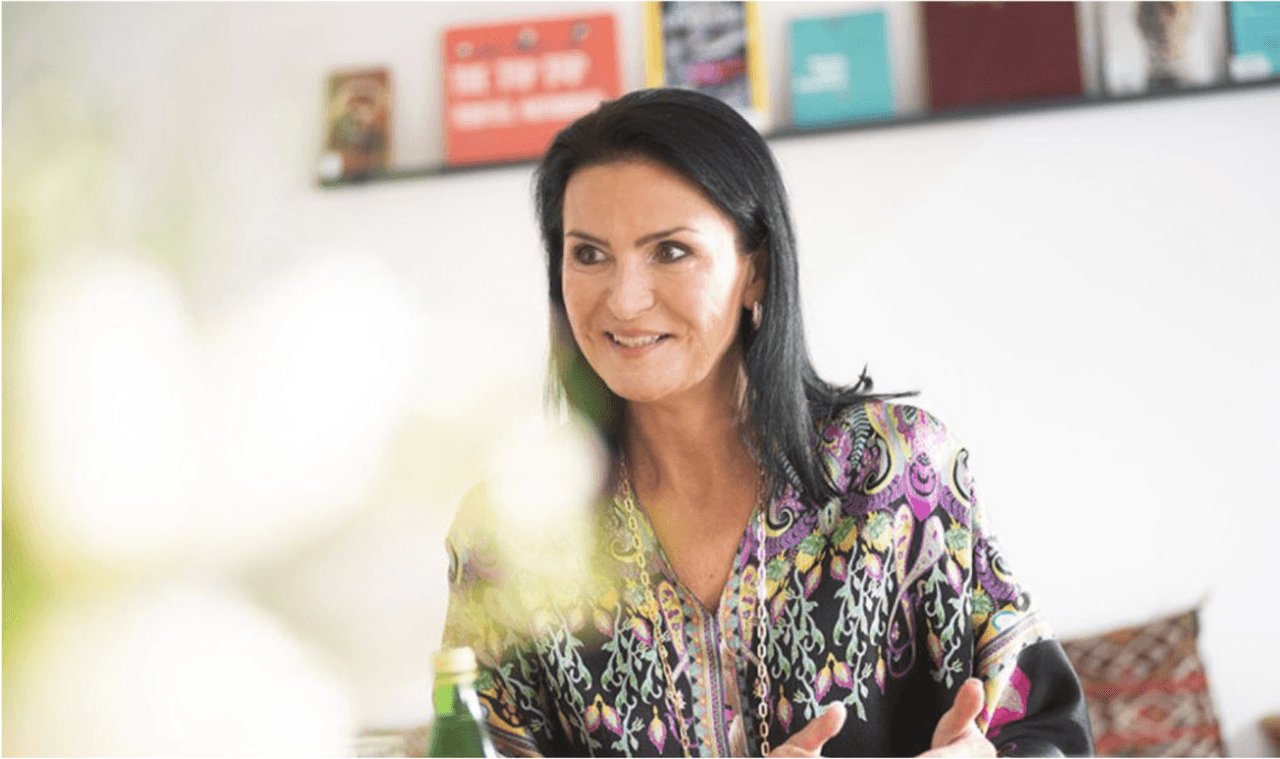
Your mother, as a pastor’s daughter, was not allowed to go to college. Was this the impetus for your involvement in educational projects as philanthropists?
It was a bit of a different story. When I met my husband, he said, ‘I give away money all the time, but there’s no order to it, do you want to look into it?’ So, I asked him what he considered most valuable in his life besides health? Zdenek valued his education, and education in general, because of its long-term positive impact on society. That’s why we began our Foundation and Scholarship Program, to support talented students. Now there are over 200 students from the Czech Republic who have graduated at the best universities with our support.
You are also dedicated to the education of journalists. Why?
I see freedom and free media as linked. This country needs professional journalists. In the 1990s, I would have taken it for granted; today I see it as a responsibility. Our foundation organizes a Journey program where we invite the best journalists in the world to share their experiences with our young reporters. They all educate each other, support each other, and connect with each other. Jan Kuciak, the journalist found murdered in Bratislava with his girlfriend, was one of the graduates of our other journalist program, Achilles’ Data, which focuses on investigative journalism. I’m incredulous at the things happening in Europe today. Now students are arriving from Poland, Hungary and Ukraine, and once again it is being shown how valuable this work is.
Seeing the direction that the development in Europe has taken, I don't think your mission is over.
Well, I’ve decided to continue my studies in order to continue to grow in life. I have been accepted for a master’s degree in psychology in the United States, starting next fall.
Another student in the family, congratulations!
That’s right, back to school. Life keeps going at 50!
